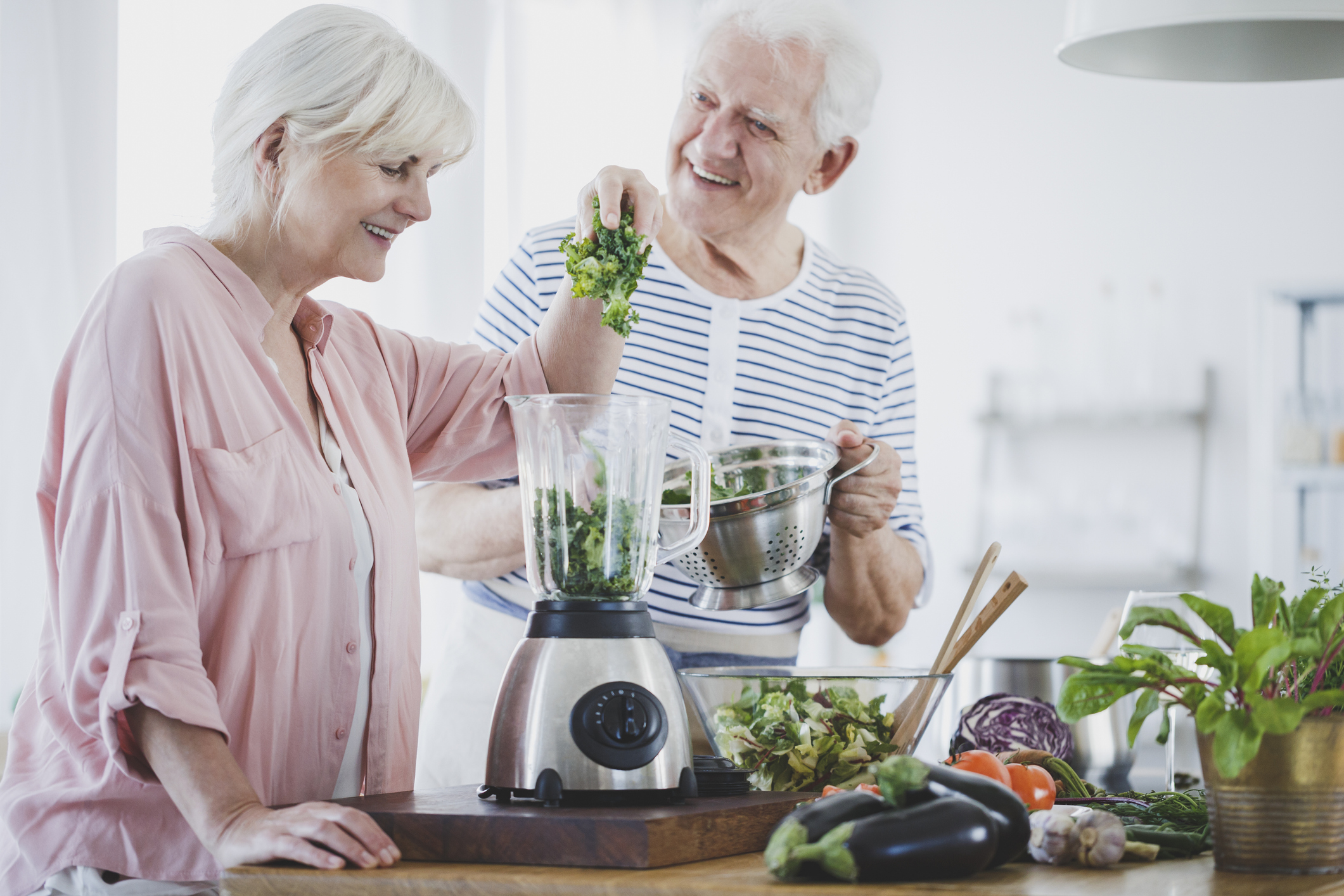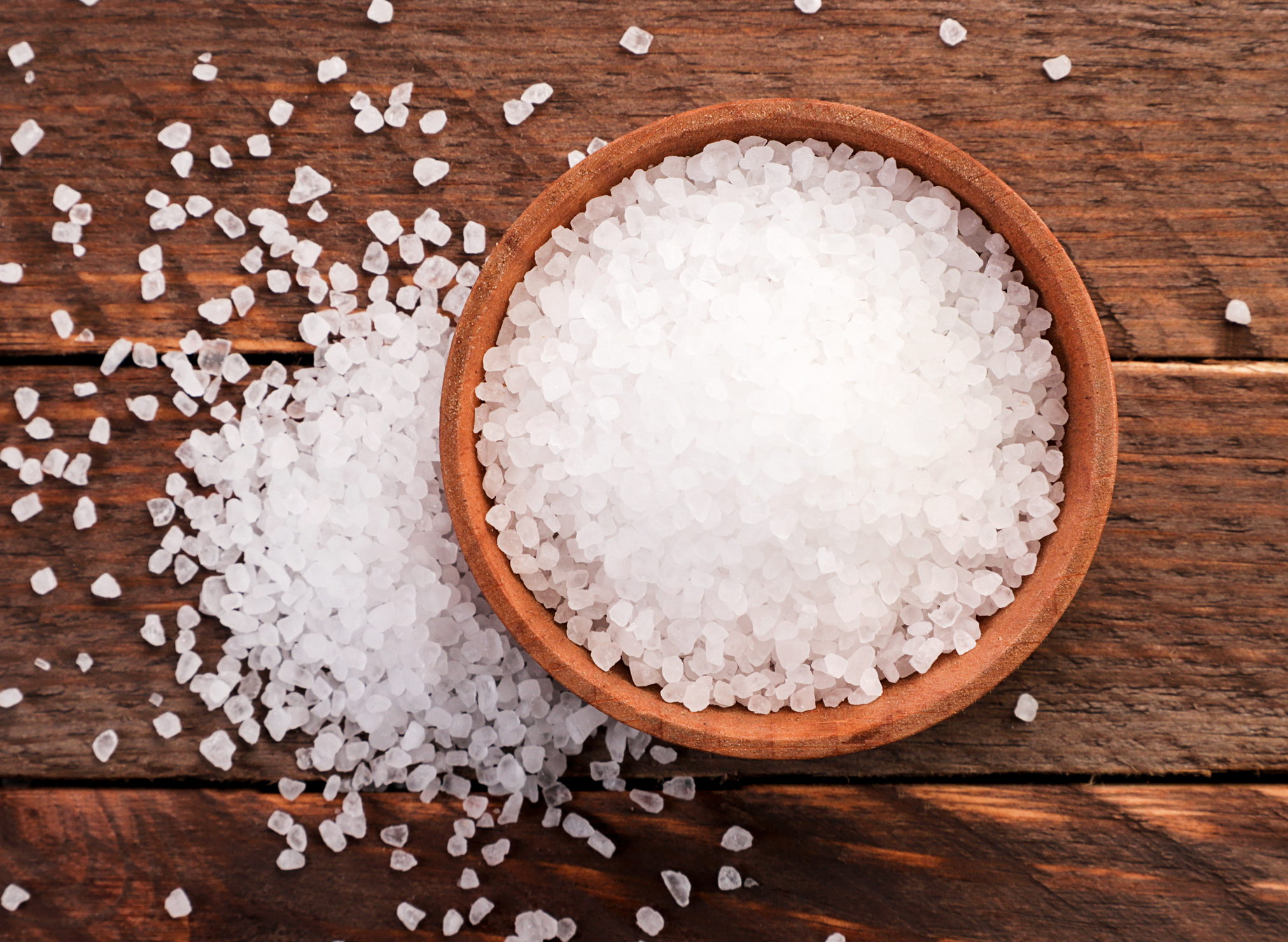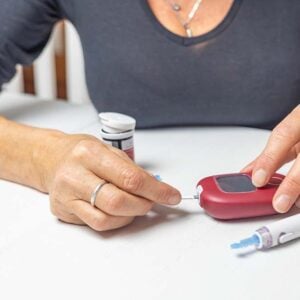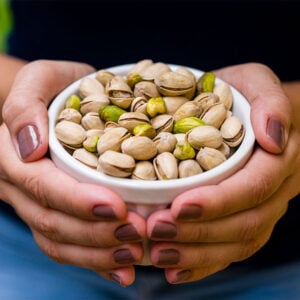
The SHOCKING Truth About Cholesterol
The Numbers Tied to LOWER Heart Risk and Longer Life
If you’ve been reading my articles for any length of time, you probably know that my view on cholesterol is different from that of mainstream medicine.
The short version: Your body needs cholesterol for optimal health.
In fact, studies have proven that people with “high” levels of LDL cholesterol actually live longer than those with lower levels!
But I want to shift the focus to a different kind of cholesterol: high-density lipoprotein, or HDL.
This is the kind often referred to as “good” cholesterol.
When it comes to heart health, brain health, and lifespan, it’s far more important to maintain adequate levels of HDL cholesterol than it is to reduce your levels of LDL.
So today, I’m going to share eight simple ways to keep this important type of cholesterol high enough for optimal health.

By consuming a whole food diet, you’ll automatically see beneficial increases in your good cholesterol.
Higher Cholesterol = Lower Mortality
Doctors and the medical community tell you that the best way to protect heart health is by keeping LDL levels low.
But they’ve got it all wrong.
A BETTER way to protect heart health is to focus on boosting levels of HDL.
Studies have shown that higher levels of HDL correlate to a lower risk of cardiovascular disease.
Optimal levels of HDL cholesterol can reduce the risk of certain diseases — like coronary artery disease, that causes 800,000 deaths per year in the United States.
In fact, low HDL levels are a predictor of dying from cardiovascular disease even in people on drugs to lower LDL cholesterol.
Higher levels also reduce the risk of stroke.
The benefits of HDL were clearly seen in a large study that included 52,268 men and 64,240 women from two prospective population-based studies: the Copenhagen City Heart Study and the Copenhagen General Population Study.
The men in the study with the lowest death rates had HDL levels of 73 mg/dL.
Among women, the lowest mortality was linked to an HDL of 93 mg/dL.
(For perspective, an HDL below 40 mg/dL on the lipid panel is considered low.)
As in previous studies, low HDL levels under 39 were also associated with a higher risk of death.
While there is such a thing as too high when it comes to HDL (this same study showed that men and women with extremely high levels of HDL, above approximately 100 mg/dL, were at significantly higher risk of mortality), this isn’t an issue for most people.
A Better Way to Test Your HDL
At this point in time, most physicians check the HDL level based on a lipid profile.
But its use clinically is limited.
Recent research on patients with documented cardiovascular disease has suggested that the HDL cholesterol from the lipid panel is inferior to a more comprehensive lipid profile using the technique called nuclear magnetic resonance spectroscopy (NMR) or VAP test—both of which are widely available.
This advanced lipid test not only measures the overall HDL cholesterol level, but also breaks down the number of various HDL particles and gives a total HDL particle number called the HDL-P.
HDL-P has been found to be superior to HDL cholesterol in predicting cardiovascular events.
Incidentally, gemfibrozil, a drug to treat hyperlipidemia, has been shown to significantly increase HDL-P.
The Answer to Alzheimer’s?
Did you know that more than 60 percent of your brain is made up of fat by weight? Fat—both saturated and unsaturated—provides structural integrity and fluid to your brain cells.
You may already know that omega-3 fats are great for your brain health and your cognitive function.
But cholesterol is just as important.
In a recent study, researchers analyzed the concentrations of HDL cholesterol in the cerebrospinal fluid of 180 people averaging 77 years old.
They found that having more HDL particles in the spinal fluid was linked with two factors that can help protect against Alzheimer’s:
Better performance on tests of memory and thinking.
Higher levels of a peptide called amyloid beta 42 in their cerebrospinal fluid.
You can think of HDL particles as a lubricant that keeps the kinks out of your brain system.
The researchers concluded that HDL is involved in the clearance of the harmful particles that contribute to amyloid beta plaque seen in Alzheimer’s disease.
Why Drug Treatments are a Dud
Drug therapies have been used to raise the good cholesterol.
One of the first was the B vitamin niacin, which is a potent elevator of HDL cholesterol levels. But it has downsides, like increasing blood sugar levels and diabetes risk. It also hasn’t been shown to lower cardiovascular disease risk and mortality.
Other drugs have been found to dramatically elevate HDL cholesterol. An example of this is the drug torcetrapib which blocks cholesteryl ester transfer protein (CETP), which was shown to raise HDL levels by an average of 60 percent.
It sounded good at first, but this drug turned out to be a dud because in the clinical trials it raised blood pressure and increased cardiovascular events.
There have been other drugs in this class that have had clinical trials, but none of them have panned out in the end.
But while drug treatments don’t help with HDL, many certainly hurt it. Medications such as beta blockers, anabolic steroids, progestins, and benzodiazepines have all been shown to depress HDL levels.
The Cholesterol/Circadian Connection
I often point out that the complicated metabolic processes associated with lipids and cardiovascular disease are controlled by the circadian mechanism.
In my practice, I have noticed that patients with low HDL cholesterol are more likely to have issues around circadian disruption from their environment.
Modifying various lifestyle factors can raise HDL cholesterol, but fixing your circadian rhythm has to be part of the equation.
In my opinion, correcting the circadian rhythm with safe sun exposure and avoiding/mitigating artificial light is a critical baseline intervention to improve HDL levels and reduce the risks of atherosclerosis.
The Many Ways HDL BOOSTS Heart Health
This brings up an important question:
If HDL is good for your arteries, why wouldn’t raising it with high-dose vitamins and drugs produce the same benefits of a naturally optimal HDL level?
It turns out that HDL cholesterol is much more complex than most people realize.
We tend to think of it as one particle that’s comprised of lipids, cholesterol, and proteins. But HDL is a family of particles.
HDL’s most widely recognized mechanism for heart protection is the fact that it plucks cholesterol from places where it shouldn’t be (which is the walls of the arteries), and deposits them in the liver for elimination or recycling.
But HDL has other known functions. Take a look:
- HDL has antioxidant properties and can reduce the oxidation of LDL cholesterol, which is what makes up artery plaque. (It has also been discovered that, in certain situations, HDL can increase free radicals and oxidation of LDL, so a high HDL cholesterol reading is not always safe.)
- HDL increases nitric oxide release in the arterial wall, which relaxes the arteries and improves the function of endothelial cells that line the inside of your arteries.
- HDL affects the immune system by acting on the function of T regulator cells. Research has shown that people with low HDL cholesterol are at higher risk for developing sepsis and other infections.
- HDL prevents cell apoptosis (cell death) of endothelial cells. It also protects endothelial progenitor cells, which are descendants of stem cells.
8 Ways to Boost HDL Cholesterol Levels
The bottom line: The higher your HDL within the healthy range, the lower your risk of heart disease, vascular disease, stroke, and even Alzheimer’s.
So now the big question is: How do I naturally increase my HDL levels?
It all comes down to lifestyle.
If your HDL is low or low-normal, you can take steps TODAY to change it. Here are eight lifestyle factors that have been proven to raise HDL cholesterol.
1. Exercise.
Studies have shown that many different types of exercise—from strength training, to aerobic, to high-intensity exercise—effectively boost HDL.
The higher intensity, the greater the HDL benefit.
Not only that, but exercise can boost the anti-inflammatory and antioxidant effects of HDL.
2. Lose weight.
Weight loss has been associated with increased HDL cholesterol. A little goes a long way.
One study showed that losing just 1 to 3 percent of body weight was tied to a significant increase in HDL levels.
3. Drink some alcohol.
Moderate alcohol consumption, which is considered the equivalent of one glass of wine per day for women and up to two glasses of wine per day for men, raises HDL.
4. Stop smoking.
One reason why smoking is so harmful to your health is because it suppresses HDL cholesterol. The good news is that quitting smoking can reverse that problem.
In fact, one study showed that people who quit smoking had TWICE the increase in HDL as those who quit and then resumed smoking within a year.
5. Consume more olive oil.
Olive oil has been shown to reduce the risk of heart disease. One reason why could be that it boosts levels of HDL cholesterol.
In one study, consuming two tablespoons of olive oil with a high polyphenol content every day for three weeks significantly increased HDL levels.
It’s also been shown to boost the anti-inflammatory and antioxidant properties of the HDL.
6. Eat real food.
Highly processed foods such as processed oils (especially trans fats) and carbohydrates lower HDL. By cutting out the junk food and consuming a whole food diet, you’ll automatically see beneficial increases in your good cholesterol.
7. Consume more purple foods.
Purple foods like eggplant, blueberries, red cabbage, and blackberries contain beneficial compounds called anthocyanins that have been shown to fight inflammation and boost HDL cholesterol.
In one study, taking an anthocyanin supplement every day for 24 weeks led to a 19.4 percent increase in HDL.
8. Eat more fatty fish.
Omega-3s from fatty fish have been shown to reduce inflammation, boost arterial health, reduce heart risk, and protect your brain.
One key reason for this wide variety of health benefits is due to its impact on your HDL levels.
In one study, eating fatty fish (like salmon, mackerel, or sardines) four times per week for eight weeks led to an increase in HDL and a beneficial increase in the particle size of HDL.
It turns out that HDL cholesterol is much more complex than most people realize.
None of this is rocket science. The same lifestyle factors that are tied to a longer, healthier life are many of the same ones that increase your HDL cholesterol levels.
The connection to “good” cholesterol levels helps explain yet another reason how these factors help improve your overall health.
[Alert] Don’t Fall for This Big Sodium LIE
What the Science Really Says About this Forbidden Food
The modern medical community and so-called “health” organizations love to tell you how to live your life.
There’s just one problem: Their advice is usually terrible.
Too often, it is based on research that has been bought and paid for by Big Pharma, Big Food, or some other Big Deal with lots of money to throw around.
And because any Organization (with a capital O) is typically a slow-moving machine, it can take years for recommendations to catch up to REAL science.
Prime examples are perfectly healthy foods that have been villainized over the years, like red meat, full fat dairy, eggs, coffee, and alcohol.
Of course, if you’ve been with me for a while now, you know that ALL of these foods make up a large portion of my diet and have been scientifically proven to be beneficial for your health.
Today, I want to tackle another controversial topic: salt intake.
If you’ve been told to skip the salt for your heart health—you’ll definitely want to read this.

Sea salt is produced by an evaporation process and contains the salt and other minerals that naturally occur in the ocean.
Salt of the Earth
For most of civilization, salt was praised as being rare and valuable, especially in areas not adjacent to the ocean. (In fact, the Bible speaks of the followers of Jesus as being the “salt of the earth,” which implies that it is valuable and beneficial.)
There have been wars fought over salt, and it has even been used as money.
Humans have a strong drive to consume salt, as it is one of the four tastes (sweet, salty, bitter, and sour).
In fact, the human blood content of sodium is approximately equivalent to the seas of the Precambrian era, which is when and where life arose on earth.
You could theorize that primitive humans might not have had salt available, and so depended on the salt content of their diet.
For early humans this was a hunter-gatherer diet, which contained plenty of natural sodium.
With the advent of agriculture, the diet shifted to vegetables and grains. With this more modern diet, added salt would be necessary for optimal health.
Salt: It Does a Body Good
Notice that I said that salt is necessary for optimal health—not just for tasty food.
Sodium exists in the cell as a positively charged ion that is part of how the nerve cells transmit messages.
It is used to contract and relax muscles, and it is critical for maintaining the proper balance between water and minerals in the body.
Sodium is highly concentrated on the outside of the cell membrane, and this positive charge is balanced on the inside of the cell membrane by potassium.
The sodium and potassium balance are critical for life.
In fact, both low sodium and/or low potassium can cause death.
So, then why do major health organizations—like the American Heart Association, the World Health Organization, and the Institute of Medicine, to name a few—advise a drastic reduction in salt intake?
The reason is that many studies have correlated a high salt intake with elevated blood pressure. And high blood pressure is a risk factor for heart attacks and strokes, leading causes of death and disability in modern society.
So, it just makes sense that if lowering salt lowers blood pressure, then it must reduce heart attacks and strokes.
It seems like simple logic.
The problem is that simple logic doesn’t always pan out in the real world.
How Much Salt Is Too Much?
When it comes to salt intake, too much and too little can be a problem for your health.
The global average salt intake is about 8 grams per day.
Many health organizations recommend salt intake as low as 1,500 mg of sodium per day, equaling about 3.95 grams of salt.
Salt is 40 percent sodium and 60 percent chloride, so to get the amount of salt from milligrams of sodium, you would need to multiply it by a factor of 2.53.
Ideally, you should aim for 7-9 grams of salt per day. But certain individuals may need more or less depending on climate, activity level, and fluid intake.
If you’re not eating processed junk food loaded with sodium, and you’re eating plenty of whole foods—including meat—then you should be getting everything you need through diet alone.
And you can feel free to shake on some extra salt for flavor.
The TRUTH About Salt Intake
A recent review of the literature was undertaken to try to get to the truth.
Dr. Andrew Mente, an epidemiologist from McMaster University, and colleagues published a paper in the European Heart Journal trying to answer this issue.
The team reviewed the available published data, and tried to answer five questions:
1. Is there observational data showing that a low-sodium diet (compared to moderate sodium) reduces cardiovascular disease or death?
The answer: No.
2. Was it feasible to achieve low sodium intake on a sustainable basis?
The answer, based on the literature: No.
3. Do animal studies of sodium intake, when comparing the human equivalent of low versus moderate sodium levels, relate to healthy outcomes?
The answer, again: No.
4. Is there randomized controlled trial evidence showing a lowered sodium diet and health outcomes?
You can guess the answer by now: No.
5. Is there physiological data showing that low sodium intake has no adverse effects on cardiovascular risk markers?
Drum roll, please: No!
In fact, the results of large, comprehensive, observational studies have shown just the opposite. That is, countries with higher sodium intake have significantly lower mortality.
This is because research suggests that sodium intake and mortality follow a “U” shaped curve, where LOW levels of sodium intake increase mortality as well as high sodium intake.
The lesson to be learned here is that there is no concrete evidence that moderate sodium intake is harmful. In fact, moderate sodium intake may be BETTER than the low sodium intake that some institutions are still recommending.
However, it is true that too much sodium can raise blood pressure. So, if you have salt-sensitive hypertension, you may be advised by your physician to restrict sodium. In certain cases, this may be appropriate.
But unless there’s new, strong data that causes us to rethink this, the average healthy person should have no problems with moderate salt in the diet.
The Only Salt I Recommend
Not all salt is created equal.
And if you have a shaker sitting on your kitchen table with common processed table salt, you should throw it out right now.
One problem with table salt is that the FDA requires salt manufacturers to add in iodine to prevent goiter of the thyroid in the population.
The average healthy person should have no problems with moderate salt in the diet.
Another problem with table salt is that it is cooked at high temperatures, which destroys most of the other minerals contained in natural salt (including iodine, ironically).
Table salt can also have additives such as anti-caking agents so that it doesn’t clump. Potentially harmful additives can include aluminum derivatives, talc, silica, fluoride, and others.
It might flavor your food, but it’s doing nothing good for your health.
Another common type of salt you should skip is the Himalayan salt that is mined from salt quarries in the Himalayas.
Although many natural health specialists recommend this type of salt, I’m not a fan of this form because it contains potentially toxic agents like uranium and thallium (among many others, although in tiny amounts).
It contains fluoride, which results in electron transport and mitochondria inefficiency. And because it is mined, it can contain contaminants from drilling and explosives.
Finally, it is not as organically bioavailable as salt from the ocean.
That’s why, I always recommend sea salt to my patients.
Sea salt is produced by an evaporation process and contains the salt and other minerals that naturally occur in the ocean.
Sea salt is also in a bioavailable, organic form via its interactions with oceanic microflora.
The one possible downfall of sea salt is the accumulation of micro plastics in the ocean, so this might become a problem in the future.
Dr. G’s Personal Anti-Stress Technique
The Simple Practice to Boost Your Mental and Physical Health
As a medical doctor, I don’t just see patients suffering from physical health problems.
Every day, I hear about the struggles of mental stress, anxiety, depression, and a general sense of being… overwhelmed.
I’ve been there.
More importantly, I’ve gotten to the other side.
That’s why, for many of my patients who are suffering from poor health or are burdened with stress, I suggest the SAME thing that worked for me when I was experiencing the most stressful, depressing, rock-bottom time of my life.
It completely turned things around for me.
And even though that was 40 years ago, I still practice this method in my personal life to this day.

Practicing gratitude can be as simple as jotting down a list on a napkin, writing down a favorite part of your day, or describing someone who is important to you.
How a Napkin Changed My Life
Medical training was no walk in the park.
At the hospital, I was on call every fourth night. I was also on the internal medicine rotation, and my nights on call were a disaster.
Without fail, all hell would break loose when it was my turn.
The ICU would be full of chaos, the emergency department would be overflowing, and I didn’t have time to respond to the nurses’ calls for issues with patients on the regular hospital floor.
After a couple months of this, I was bordering on full-blown depression (if not psychosis).
One day at lunch in the hospital cafeteria (after another rough night on call), I was complaining about my dire situation and terrible luck.
I’ll never forget it.
The night before I had 13 hospital admissions on top of many other disasters.
My friend (who had also been on call the previous night), told me he had no admissions and actually got a fair bit of sleep.
Hearing this almost sent me over the edge.
I don’t remember who it was, but someone at the table asked me, “Isn’t there something you can be grateful for?”
Then she told me that if I could think of anything, to write it down and focus on those things, instead of focusing on my anger, fear, and depression.
I resisted at first. But she persisted, and I wrote down three things right there on a napkin. I stared at the words, and later that day an amazing thing happened.
It was like a weight had been lifted off my shoulders. It was so tangible that I literally thought I was lifting off the ground.
To make a long story short, it helped.
After a while, I began to realize that gratitude, the emotion, is something that needs to be cultivated. It can be lost if we get too preoccupied with our circumstances.
Years later, I suggested this method to my patients facing life situations that were creating a similar despair. It commonly worked beautifully.
And whatever your life circumstances, I believe it can work for you, too.
The Science of Gratitude
The idea of practicing gratitude has been around since ancient times. It has been discussed in religion, spiritual practices, and philosophy.
And although you could just take my word for its benefits, you don’t have to.
Today, the study of the effects of gratitude is a growing area of scientific research. The Greater Good Science Center out of UC Berkeley has created a white paper on gratitude to summarize this expanding research.
Here is just a sampling of the powerful effects gratitude has on your body, your brain, and your emotions.
- To study the effects of gratitude, scientists have created various scales and questionnaires to measure levels of it. One study showed that greater gratitude scores were associated with lower hemoglobin A1c blood levels, which is a marker of blood sugar control in diabetics.
- Gratitude practices are associated with improvements in heart rate variability scores. Heart rate variability is correlated to the balance of the autonomic nervous system, and people with higher heart rate variability have a lower risk of cardiovascular disease and are usually healthier overall.
- Studies in healthcare workers and teachers have shown that those who practice gratitude have less burnout compared to those not practicing it.
- Gratitude increases your mental well-being, which can help boost your immune system and help fend off illnesses.
- Practicing gratitude has been shown to help reduce symptoms of anxiety and depression, while also improving mood.
- Gratitude practices can boost your optimism, which has been connected to factors consistent with healthy aging—specifically, remaining free of chronic disease, maintaining healthy cognitive function, and having good physical function.
A Look Inside Your Brain
Functional MRI studies allow scientists to see which areas of the brain are active during mental processing.
Numerous studies have taken a peek inside the brain to see exactly what happens when someone is practicing or expressing gratitude.
And the results have been remarkable.
One study showed that when a person is expressing gratitude, there is increased activity of brain regions in the medial prefrontal cortex. This is the part of the brain that’s associated with understanding another person’s perspectives, feelings of relief, and empathy.
Other functional MRI studies show increased activity in the mesolimbic and basal forebrain areas, which are associated with reward and social bonding.
One study showed that keeping a gratitude journal strengthened the activity of these areas of the brain compared to people that were doing non-gratitude journaling. This suggests that those who focus on expressing gratitude get more reward signals in the brain and feel better when other people benefit.
Other studies have shown increased activity in the pregenual anterior cingulate cortex, which is an area associated with mental calculations. This suggests that a gratitude practice could help cognitive function.
I began to realize that gratitude, the emotion, is something that needs to be cultivated.
In fact, back when I was a medical intern, my mental functioning definitely improved when performing complicated medical care after I started my gratitude journal.
It has been hypothesized that the beneficial effects of gratitude may come from the mu opioid signaling in the central nervous system.
This part of the nervous system helps improve neuron functions. This is correlated to evidence of its role in pain relief, positive mood and reward, social motivation, better interpersonal relationships, and relaxation from stress.
Gratitude in Action
There are many ways to practice gratitude.
You can journal, like I do. This can be as simple as jotting down a list on a napkin, writing down a favorite part of your day, or describing someone who is important to you.
You could keep a gratitude jar. Whenever something good happens or you’re feeling thankful for something, jot it down and drop it in the jar. In no time at all, you’ll see your blessings adding up.
Some people enjoy practicing meditation, while others might pray.
Whatever it looks like for you, the point is to intentionally focus on the good in your life.
As you’ve learned, doing so will produce physical changes in your brain and your body that connect to a lower risk of disease, and a longer, more contented life.
Final Thoughts
I believe that expressing gratitude is much different than just positive thinking.
Even in the most distressing situations, you can always find three or seven or 10 things you’re grateful for.
If you believe in a higher power, then you might believe as I do that everything that happens in your life has a purpose.
Sometimes the situation is something we would not prefer.
I can think back to that poor, unlucky intern trying to juggle dozens of decisions. But when he thought about what he was grateful for—such as the gift of life itself—he was able to face it and get through.
The situation was still there, and I still had to deal with it… but somehow I survived.
I’m sure that year was something that I needed to experience (the reason for which I’m not 100 percent clear on). But I trust my Creator and am grateful for the lessons learned—ones I can still pass on to my patients (and to readers like you) today.
Written By Dr. Richard Gerhauser, M.D.
For years he’s been the trusted doctor for celebrities, world-class athletes, and countless seniors looking to reclaim their health.
And now…for the first time ever… he’s making his medical breakthroughs available to readers all across America.
Dr. Richard Gerhauser, M.D. is one of the most pioneering and innovative minds in medicine today – and he delivers cutting-edge cures each month through his Natural Health Response newsletter.
Natural Health Response readers get full access to Dr. Gerhauser’s protocols for chronic pain… heart disease… diabetes… Alzheimer’s… and even cancer. These are the very same treatments Dr. Gerhauser recommends to his own patients at his practice in Tucson, Arizona.
In addition to being a board-certified medical doctor, Dr. Gerhauser has earned two master’s degrees and has served as a clinical professor at the University of Arizona.
And as a physician at the world-famous Canyon Ranch, Dr. Gerhauser treated celebrities from around the world who paid dearly for the type of next-generation health information he provides Natural Health Response readers each month.
View More Free Articles
FDA Declares Popular Decongestant USELESS
If you’ve ever turned to over-the-counter (OTC) cold meds for relief from a stuffy nose, well this news may surprise you… The FDA is proposing a ban on oral phenylephrine, the ingredient in many popular decongestants. Why? Because it doesn’t work. Despite being the main decongestant ingredient in OTC brands like Sudafed PE, Tylenol Cold […]
5 Ways to “Beat the Bloat” This Thanksgiving
As we prepare for Thanksgiving week, there’s a lot to look forward to and be thankful for. Family gatherings, football games, great food, and even better desserts top the list. Then there are all the leftovers. It’s not a holiday that’s known for moderation. But if you’re not careful, overdoing it on Thanksgiving could leave […]
Eat THIS to Reduce Your Risk of 14 Cancers
I’m a meat-and-potatoes guy. I’ll never turn down a big, juicy steak. But even more than that… I’m a fish guy. There’s not much I like more than a perfectly grilled salmon. I hope you do, too, because salmon contains two potent nutrients tied to a reduced risk of 14 types of cancer. Omega-3s are […]
The Bad Habit Robbing YEARS from Your Life
I often get eye-rolls when I stress just how essential lifestyle factors like light reducing pollution and grounding are good for health. But new research continually proves that I’ve been right all along. Today, a critical new study shows that something I’ve warned you about for YEARS is tied to a 34 percent increased risk […]
Reduce Colon Cancer Risk by 30%
More than 150,000 people are diagnosed with colorectal cancer yearly. Another 35,000 will get a liver cancer diagnosis. But if you have type 2 diabetes, your risk of developing one of these skyrockets—a 47 percent increased risk of colorectal cancer, and a two to three times higher risk of liver cancer. That’s why I’m excited […]
“Dinner Plate” Danger Raises Prostate Risk
Did you know that prostate cancer is FAR more prevalent in developed parts of the world than in less developed regions? Strange right? What is it about our modern, developed society that’s attacking our male population? There are MANY answers to this question. The primary one I will focus on today is a significant environmental […]
The 5-Minute Solution to Better Blood Pressure
Are you one of the millions who battle the so-called “silent killer” hypertension? And do you have five minutes to spare daily? If so, you could be well on your way to significantly healthier blood pressure. Sound too good to be true? A new study proves it. And the best part? It’s incredibly easy If […]
“Eye-Opening” Benefits of Pistachios
Imagine if there were a daily snack that could protect your vision. Well, a recent study brings good news for the 20 million U.S. adults already battling macular degeneration—the leading cause of vision loss for those over 60. Adding a handful of pistachios to your diet might help shield your eyesight. Let’s take a “look.” […]
Get Better Blood Sugar This Holiday Season
Let’s face it. The holidays are NOT good for your waistline… or your blood sugar levels. Potlucks, family dinners, cookie exchanges, Christmas parties… you know the drill. So, if you’re one of the 98 million people on the brink of type 2 diabetes, it’s VITAL to take steps to manage your blood sugar levels as […]
Common Vitamin Is a Hidden Colon Cancer Shield
With aggressive colon cancer on the rise in younger people, I’m always on the lookout for research showing how we can all lower our risks. Over the past few months, I’ve shared studies showing that stress, oral bacteria, obesity, and circadian disruption are all tied to colon cancer. And just last week I revealed how […]










